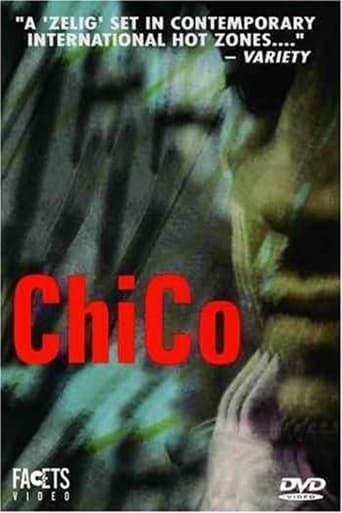vkelman
The main reason I like Chico by Hungarian director Ibolya Fekete is that it never tries to force you to make a moral decision, to view world in black and white only. It's almost opposite to The Hurt Locker (which I honestly dislike) on that matter. Ibolya Fekete narrate her story, allowing movie watcher to determine who is write and who is wrong. And this is not an easy decision... it's not like a primitive story about straight and heroic American soldiers (Hurt Locker).Also, people in 'Chico' knows what they are fighting for. They may be wrong and they are cruel, but the are not like Americans brought to Iraq by obscure political reasons of W.W...The more you see 'Chico' the more you start to empathize to its main hero... and you're becoming devastated together with him.I suspect, though, that it would be harder to understand this movie for people who were not born in USSR or other communist country, who didn't hear their propaganda for years.
furgerokalabak
Some hints how to prepare for this film:To fully understand and to _really_ absorb something of "Chico" you must have as much historical, geopolitical and ideological background-knowledge as you can. Especially about Chile, South America, Allende, Pinochet, communism, fascism, Hungary before and after the '90s, ex-Yogoslavia and the liaison of it's nations, Serbs, Croats, Chetniks, Ustashas, minorities, Albania, Jerusalem etc., just to name some of the most important keywords. (If these terms are not so familiar for you and you haven't seen the film but you want, then I recommend looking after them for a while. Believe me. It will increase your satisfaction!)To make this mess more "confusing" Chico (Eduardo Rózsa Flores) speaks Spanish(Castilian), Hungarian, English, Italian, Croatian and a little bit of Russian as the story moves along. Because of that, there are almost no people who could fully understand everything without subtitles. This is very interesting and challenging.See it!If you liked "Chico", you should also check out: Machuca (2004), Rane (1998), Before the Rain (1994). These films will also improve your understanding of "Chico" and vice versa.
politian
I'm not sure a more challenging film has been made. Fekete, director of Bolshe Vita, itself a complex and difficult undertaking, went beyond what we think of as manageable material with Chico. Blurring fact and fiction, uniting a story told through 25 years in 5 nations, or almost-nations, or nations in the process of becoming, unified by the improbable story of an impossible man whose credibility lies in the fact that he is portraying himself, masterfully, honestly, fragmentarily. This is a film of genius by a filmmaker who is not satisfied unless she is on the trail of something very large, very real -- the only other filmmakers I can think of that approach this are the early Rossellini and the early Cassavetes. I would welcome further information on this director and how she managed to make this film.
aias-1
Wow, loved it, a celebration of the struggle not the ideology. Wonderfully complex.Having lived through a dictatorship and having participated in a revolution I appreciate the cold reality and lack of romanticization in the film. Life is hard and definitely not romantic when you are in the trenches fighting a superiour enemy. But life is not miserable, I found the other side of war — the humour, the laughter and the absurdity a bit scarce in this film. Well the absurdity did come through.I found the film complicated, like life, the way it should be. The film was never preachy, quite a feat considering the intensity with which Chico embraced life according to his principles. I liked Chico even when I didn't agree with him, the depiction of Yugoslavia and the Croatian struggle within it, was moving but very much lacking in perspective; choices are difficult when one's feet are in the fire, and perspective comes with time and distance. Yugoslavia was the real victim, the US and Germany were the real criminals, and the poor Serbians, Croatians and Bosnians were very much the pawns. Pawns that had lived peacefully and admirably until the West engineered the economic collapse of Yugoslavia. The references to Che Guevara's book "Guerrilla Warfare" which so influenced Chico's character might be completely lost in todays generation and on a North American audience. But it would be great for people to see this film and be exposed to a perspective not doctored by the corporate media and the pentagon, to get a real feeling about the complexities of war. A must see film. A great story.
